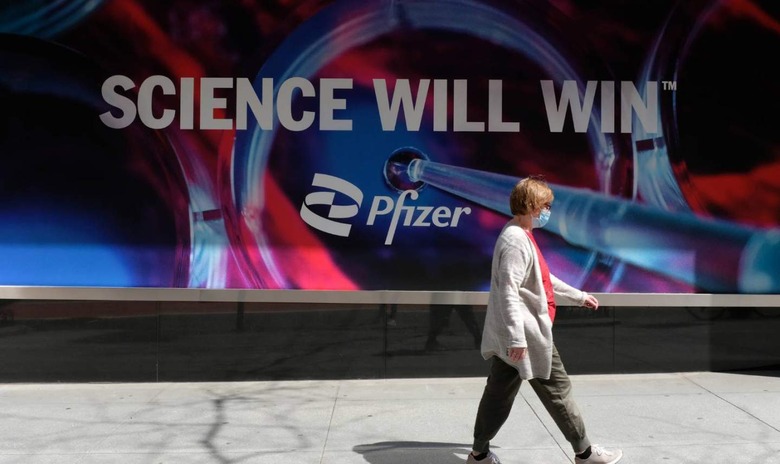Pfizer Asks FDA To Authorize COVID-19 Booster Shot For All Adults
Pfizer and BioNTech have formally asked the US Food and Drug Administration (FDA) to authorize the companies' COVID-19 booster vaccine dose for all US adults ages 18 and older. Though the FDA has already authorized Pfizer booster shots, the emergency use authorization (EUA) that grants them restricts eligibility to only certain individuals, including those who are at heightened risk of infection due to existing health conditions or job environments.
Boosters for (almost) everyone
Pfizer and BioNTech submitted their request for expanded COVID-19 booster shot eligibility on November 9. This new request follows the results from Pfizer's Phase 3 trial, which administered booster shots to around 10,000 people and compared the lower dose's efficacy rate with that of the original two-dose vaccine schedule.
Today, Pfizer has submitted a request to @US_FDA to amend the Emergency Use Authorization for our and BioNTech's COVID-19 vaccine booster dose. This request is based on results from a randomized Phase 3 trial with >10,000 participants. https://t.co/DDQldLsXKz pic.twitter.com/Qwg6CnG2gR
— Pfizer Inc. (@pfizer) November 9, 2021
The findings, which were released last month but still awaiting peer review, reveal 95-percent protection against developing a symptomatic COVID-19 infection compared to that of individuals who received the two-dose vaccine protocol. As well, the data showed booster shots are safe. The Phase 3 randomized, controlled trial enrolled its participants during a time period when transmission of the SARS-CoV-2 Delta variant was high.
Current limits
Though some people ages 12 and older in the United States have been able to get a third primary dose or booster shot for weeks, many people remain ineligible under the current emergency use authorization issued by the FDA. As a result, only adults ages 65 and older who have received the primary COVID-19 vaccine schedule can get the booster shot. As well, the EUA authorizes boosters for adults ages 18 to 64 who are at high risk of severe infection or exposure to the virus.
Beyond that, the FDA has authorized Pfizer booster shots for individuals who first received a different COVID-19 vaccine, such as Moderna's product. This helps protect the most vulnerable in society, such as adults who have cancer or other diseases that compromise their immune systems, but leaves many people without the option for a booster shot heading into the winter season.
Under the existing authorization, the two-dose primary Pfizer COVID-19 vaccine is administered with two shots scheduled three weeks apart. The vaccine is now authorized for kids as young as five years old, a decision that was recommended by an independent panel of experts. The FDA followed the recommendation with its authorization around a week later, with the CDC also giving its approval days after.
Controversy remains
The COVID-19 booster shot has proven controversial in the US and beyond. Pfizer previously sought COVID-19 booster approval from the FDA for people ages 16 and older, but the FDA trimmed down the request to its current and far more limited eligibility guidelines.
The push for booster shots has grown as an increasing number of people had their primary vaccine shots months ago and there are some concerns about decreasing immunity. This potential issue would collide with the winter season, which is expected to bring a variety of risk factors, including decreased mask use compared to last year and an increase in social gatherings due to the holidays.
In addition, the World Health Organization heavily criticized the Biden administration's initial booster shot proclamations back in September, accusing wealthy nations of failing to donate the promised vaccine doses to lower income nations.
As a result of this distribution controversy, WHO Director-General Tedros Ghebreyesus called on wealthier countries to delay widespread booster shot availability until the end of 2021 or beyond. In a blistering remark at the time, Ghebreyesus said, "I will not stay silent when the companies and countries that control the global supply of vaccines think the world's poor should be satisfied with leftovers."

